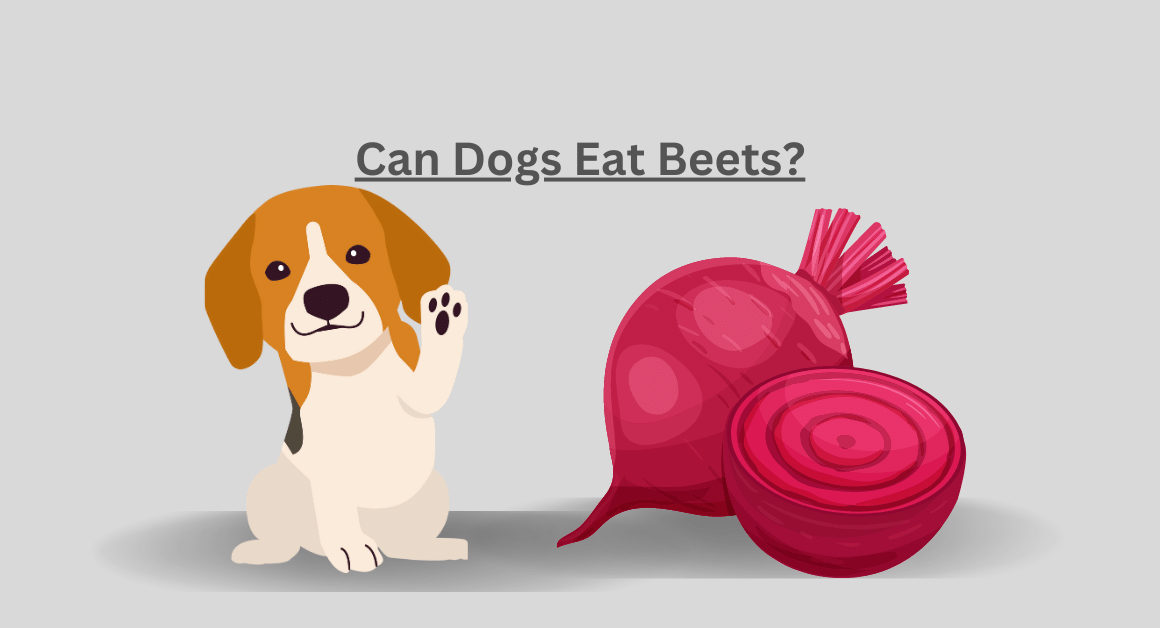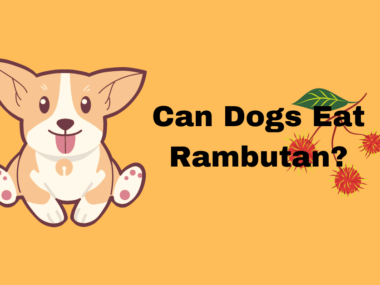If you’re a dog owner, you’ve probably wondered whether certain human foods are safe for your furry friend to eat. One such food that may have caught your attention is beets. These vibrant vegetables are not only delicious for us humans but also packed with nutrients. But can dogs enjoy the benefits of beets too? Let’s explore this topic and determine if dogs can eat beets without concerns.
Table of Contents
Nutritional Value of Beets
Before we dive into whether dogs can eat beets, let’s take a moment to understand the nutritional value these root vegetables offer. Beets are an excellent source of essential nutrients, including vitamins A and C, folate, potassium, and fiber. These nutrients play a crucial role in supporting overall health, just like they do for humans.
Can Dogs Eat Beets?
The answer is yes; dogs can eat beets, but with a few important considerations. While beets can provide some health benefits to dogs, it’s crucial to understand your canine companion’s unique dietary needs and consult a veterinarian before introducing new foods.
Factors to Consider
Several factors come into play when determining whether beets suit your dog. First and foremost, consider your dog’s digestive system. Dogs have a different digestive process than humans, and certain foods that are safe for us may not agree with their stomachs.
Additionally, you must be aware of any allergies or sensitivities your dog may have. Some dogs may experience allergic reactions to beets or develop an upset stomach when consuming them. Watch out your dog for any adverse reactions is crucial.
Lastly, the preparation of beets is also important. Dogs should never consume raw beets as they can be challenging to digest. It is best to cook or steam the beets before serving them to your dog.
READ ALSO: Can Cats Eat Beef Jerky?
Health Benefits of Beets for Dogs
If your dog tolerates beets well, it can reap some health benefits. Let’s explore some of the advantages beets can offer to our furry friends:
- Antioxidant Properties
Beets are rich in antioxidants that help combat harmful free radicals in the body. These antioxidants can support your dog’s immune system and improve their well-being.
2. Nutrient-Rich Content
Beets’ abundance of vitamins and minerals can benefit your dog’s health. Vitamins A and C promote healthy eyesight and a strong immune system, while potassium supports heart health and proper muscle function. The fiber content in beets can aid digestion and maintain a healthy weight.
READ NOW: Can Dogs Eat Cucumbers?
3. Promoting Healthy Digestion
The fiber present in beets can assist in maintaining regular bowel movements and promoting the digestive system in dogs. This can be particularly beneficial for them that experience occasional digestive issues or constipation.
4. Boosting the Immune System
The vitamins and antioxidants found in beets can help strengthen your dog’s immune system. A robust immune system can help defend against common illnesses and keep your dog feeling its best.
5. Supporting Cardiovascular Health
Beets contain nitrates, which can be converted into nitric oxide in the body. Nitric oxide use dilates blood vessels, improving blood flow and promoting cardiovascular health. However, it’s important to note that excessive consumption of beets can lead to high sugar intake, which can negatively affect dogs with certain health conditions.
READ: Can Dogs Eat Chicken Bones?
Potential Risks and Precautions
While beets offer several potential health benefits for dogs, it’s crucial to be aware of certain risks and take necessary precautions:
- Oxalates in Beets
Beets contain oxalates, which, when consumed in the drain, can form crystals and potentially lead to urinary tract issues in some dogs. If your dog has a history of urinary problems, it’s advisable to consult with a veterinarian before including beets in their diet.
2. Sugar Content in Beets
Beets are naturally sweet and contain a fair amount of sugar. While moderate amounts of natural sugars are generally fine for dogs, excessive sugar consumption can lead to weight gain and other health issues. Monitoring your dog’s overall sugar intake and serving beets in moderation is important.
3. Possible Gastrointestinal Issues
Introducing new food into your dog’s diet can sometimes cause gastrointestinal issues, such as diarrhea or upset stomach. When introducing beets, start with small amounts and observe how your dog responds. If any digestive problems occur, it’s best to discontinue feeding beets.
4. Allergic Reactions in Dogs
As with any new food, some dogs may be allergic to beets. Watch out for symptoms such as itching, rashes, swelling, or difficulty breathing. If you notice any of these signs, stop feeding beets and consult with a veterinarian.
How to Safely Feed Beets to Dogs
To ensure the safety and enjoyment of beets for your furry friend, follow these guidelines:
- Moderation is Key
Beets should be served to dogs in moderation. While they can be a healthy addition to their diet, they should not replace balanced dog food or make up a significant portion of their meals.
2. Cooking Methods for Beets
Raw beets are challenging to digest for dogs. It’s recommended to cook or steam beets before serving them to your dog. This process helps break down the fiber and make the nutrients more easily absorbable.
SEE NOW: Can Dogs Eat Squash?
3. Serving Size Recommendations
The appropriate serving size of beets depends on your dog’s size, age, and overall health. As a general guideline, start with a small amount, such as a teaspoon, and observe how your dog reacts. You can gradually increase the serving size if there are no adverse effects.
4. Monitoring for Any Adverse Reactions
Always watch your dog closely after introducing beets into their diet. Monitor for any signs of allergies, digestive issues, or changes in behavior. If you notice anything concerning, consult with a veterinarian.
Alternatives to Feeding Beets to Dogs
If you’re unsure about feeding beets to your dog or your dog has specific dietary restrictions, there are alternative options to provide them with similar nutritional benefits:
SEE ALSO: Can Dogs Eat Strawberries?
- Other Dog-Friendly Vegetables
Several vegetables offer similar health benefits to beets and are generally safe for dogs. Carrots, green beans, and sweet potatoes are excellent options to consider. Remember to introduce new vegetables gradually and in moderation.
2. Balanced Dog Food Options
Commercially available dog foods are formulated to provide a complete and balanced diet for dogs. If you need more clarification about incorporating beets or other vegetables into your dog’s diet, consult a veterinarian to find the most suitable dog food for your furry friend.
3. Consulting a Veterinarian for Guidance
Every dog is unique, and their dietary needs may vary. If you need more clarification about whether beets suit your dog, it’s always best to consult a veterinarian. They can supply personalized guidance based on your dog’s health, age, and pre-existing conditions.
READ ALSO: Can Dogs Eat Apples? in 2023
Conclusion
Beets can offer certain health benefits for dogs, but it’s essential to approach their inclusion in your dog’s diet cautiously. While some dogs may enjoy beets without issues, others may experience digestive problems or allergic reactions. Remember to introduce beets gradually, monitor your dog for any adverse effects, and consult with a veterinarian if you have any concerns.
Understanding your dog’s unique dietary needs and seeking professional guidance will ensure you make informed decisions about their nutrition. While beets can be a colorful addition to your plate, the safety and well-being of your four-legged companion should always be a top priority.
So, the next time you’re enjoying beets, consider whether they can be part of your dog’s culinary adventures too!




